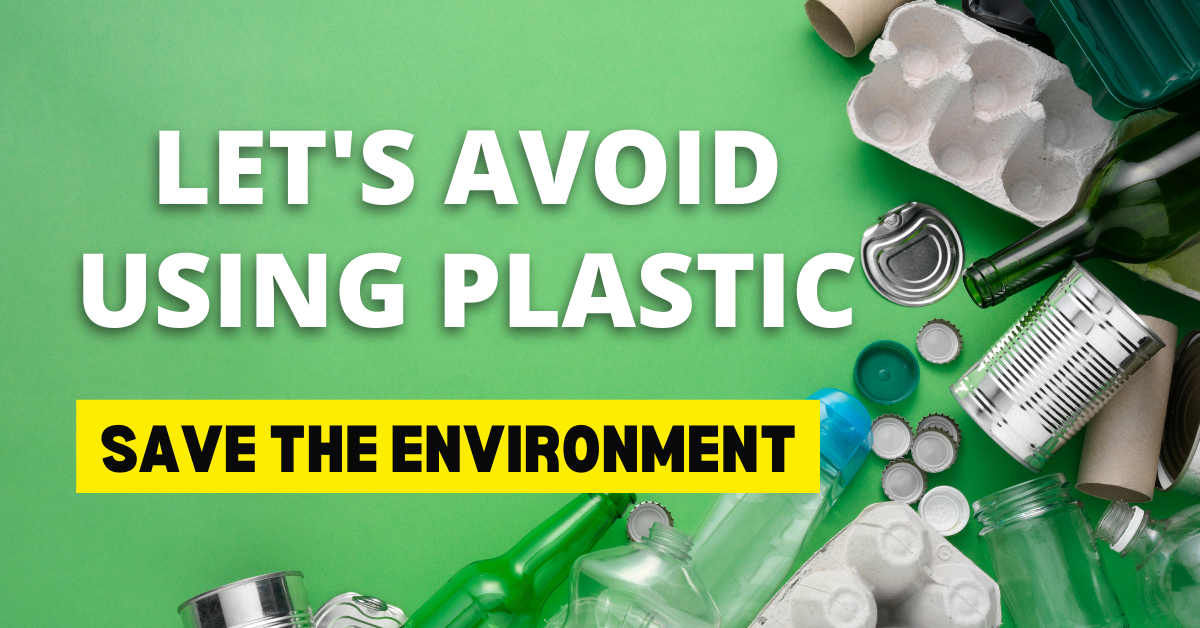Introduction
Plastic pollution has become one of the most pressing environmental issues of our time. From single-use plastic bags and bottles to packaging materials and microplastics, our dependence on plastic has had detrimental effects on our ecosystems, wildlife, and human health. To preserve our planet for future generations, it is crucial that we take immediate action to reduce plastic consumption. By making conscious choices and adopting sustainable alternatives, we can significantly impact the environment.
#The_Problem_with_Plastic:
Plastic is a synthetic material that does not biodegrade. Instead, it breaks down into smaller pieces known as microplastics, which can persist in the environment for hundreds of years. These microplastics end up in our oceans, lakes, and rivers, posing a grave threat to marine life. Sea creatures often mistake plastic for food, leading to injury, suffocation, and death. Additionally, plastic pollution affects the entire food chain, as microplastics accumulate in the bodies of marine animals and eventually find their way onto our plates.
Plastic also has a substantial carbon footprint. Its production relies heavily on fossil fuels, contributing to greenhouse gas emissions and climate change. Moreover, the disposal of plastic waste through incineration releases harmful toxins into the air, further exacerbating environmental and health issues.
#Practical_Steps_to_Reduce_Plastic_Consumption:
1. Say No to Single-Use Plastics: Start by refusing plastic bags, straws, cutlery, and other disposable items. Opt for reusable alternatives like cloth bags, stainless steel straws, and bamboo cutlery.
2. Bring Your Own Water Bottle: Instead of buying bottled water, carry a reusable water bottle with you. This simple habit can save hundreds of plastic bottles from ending up in landfills or oceans.
3. Choose Sustainable Packaging: When shopping, look for products with minimal packaging or packaging made from eco-friendly materials like recycled cardboard or biodegradable alternatives.
4. Use Cloth Bags for Grocery Shopping: Invest in reusable cloth bags for your grocery shopping needs. These bags are not only durable but also reduce the demand for plastic bags.
5. Seek Plastic-Free Alternatives: Explore alternative products that are plastic-free, such as glass containers instead of plastic ones, beeswax wraps instead of cling film, and stainless steel or silicone food storage options.
6. Support Plastic-Free Initiatives: Encourage local businesses and communities to adopt plastic-free practices. Join or initiate initiatives that promote plastic-free living, such as beach cleanups and awareness campaigns.
7. Educate and Spread Awareness: Inform others about the harmful effects of plastic pollution and the importance of reducing plastic consumption. Engage in conversations, share educational materials, and utilize social media to raise awareness.
#Government_and_Corporate_Responsibility
Government regulations play a crucial role in reducing plastic pollution. Policymakers should implement stricter regulations on the production, use, and disposal of plastic materials. This can include bans or taxes on single-use plastics, incentives for eco-friendly packaging, and investment in recycling and waste management infrastructure.
Similarly, corporations should take responsibility for their plastic footprint by adopting sustainable practices. They can redesign packaging to be more environmentally friendly, invest in research and development of biodegradable alternatives, and prioritize recycling and waste reduction throughout their supply chains.
Conclusion
The devastating impact of plastic pollution on the environment calls for urgent action. By consciously avoiding single-use plastics and embracing sustainable alternatives, we can collectively contribute to preserving the planet for future generations. It is our responsibility to reduce plastic consumption, educate others, and demand change from governments and corporations. Let’s come together to create a plastic-free world and ensure a healthier and cleaner environment for all.







মন্তব্য করুন